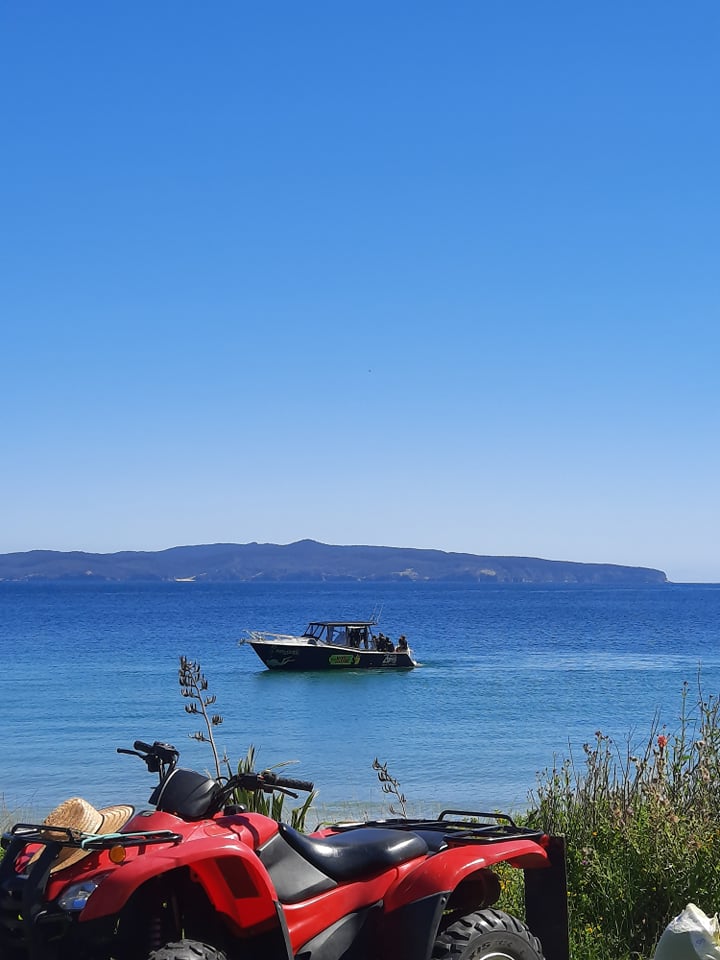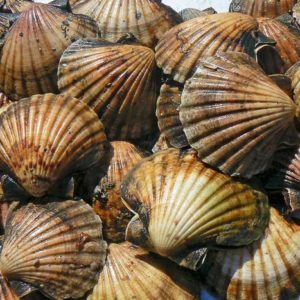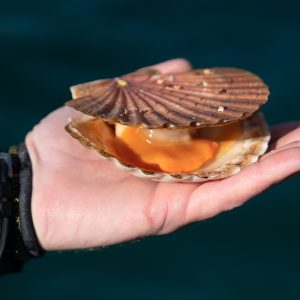A new report shows some scallop beds off the Coromandel coast are unlikely to recover from their current depleted state, and locals are concerned that ongoing dredging will threaten the future of the delicacy.
The report summarises a dive survey commissioned by the New Zealand Sport Fishing Council in 2020. In some areas of Opito Bay divers had to swim on average 26m2 to find a single legal size scallop.

Opito Bay was one of the last popular, surviving scallop beds around the eastern side of the Coromandel.
Warren Maher, a Coromandel Scallop Restoration team member and President of Tairua-Pauanui Sports Fishing Club is shocked by the survey’s results. “In the past few years it’s getting harder to find scallops anywhere around the coastline. It’s a real concern to see all the damage caused by dredging and that there are so few small scallops, which means our scallop beds are unlikely to recover any time soon.”
Divers involved in the survey say there are visible dredge tow lines that have damaged the seafloor. The dive survey was developed to establish how many scallops remained in Opito Bay. This action was prompted as MPI had not completed a scallop abundance survey since 2010. However, MPI recently contracted NIWA to carry out a thorough scallop survey of Coromandel and Northland recreational scallop areas.
Opito Bay locals have tried to engage with Fisheries New Zealand over their concerns about scallops for several years, without success. In the past year locals have worked with Ngāti Hei and several community groups to develop a restoration plan, starting with a survey of current scallop numbers and sizes.
“After years of worry it is good to be able to work with the community and develop a shared strategy to restore our scallop beds. In doing the research it was important the survey was dive only. No dredging”, says Joe Davis, Ngāti Hei Rangatira.
The dive survey was led by the Coromandel Scallop Restoration Team and Dive Zone Whitianga. Qualified divers conducted the data collection and marine scientists completed the report.
Chris Severne of Opito Bay Ratepayers Association says, “The passion and commitment to restore scallop abundance in Opito Bay is invigorating, and we are pleased to see other coastal communities having conversations around sustaining their seafood for future generations”.
LegaSea is concerned that unconstrained commercial fishing combined with the ongoing use of the heavy Victorian Box Dredge has altered the state of the seafloor. As a part of their Rescue Fish policy they call for a nationwide ban on dredging and bottom trawling from inshore waters.
“Allowing scallop dredging in this day and age is ridiculous when there is so much scientific evidence of its harrowing environmental cost, yet under our Quota Management System it remains legal. There are a growing number of frustrated communities engaging us, wanting to get rid of dredging and trawling in their coastal waters,” says LegaSea Spokesperson, Sam Woolford.
Last year the Opito Bay Ratepayers Association, Ngāti Hei, LegaSea, New Zealand Sport Fishing Council, New Zealand Underwater Association and other Coromandel communities began collaborating to find solutions. They formed the Coromandel Scallop Restoration Team with an aim to restore and sustain scallop populations.




